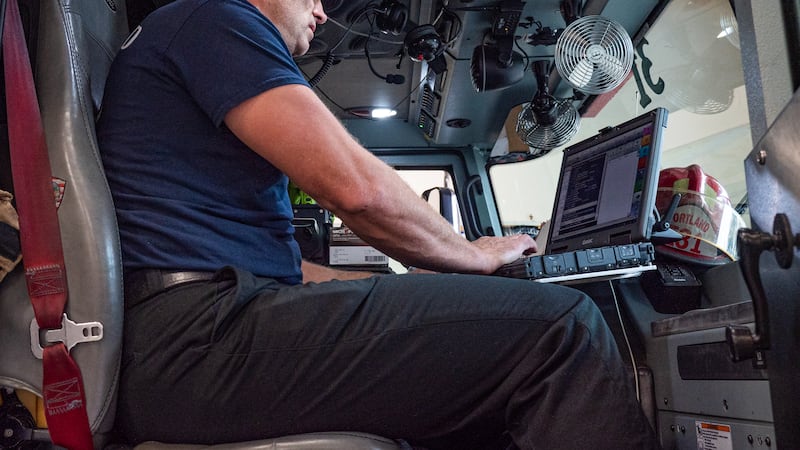Facing high call volumes and severe short-staffing that’s led to a morale crisis amongst its firefighters, Portland Fire and Rescue could lose one of its most important programs this summer: its four “rapid response vehicles” that respond to low-acuity calls so engines and trucks can respond to more severe calls.
For years the bureau has relied on those vehicles to take a portion of the calls where an engine or truck isn’t necessary, such as senior tumbles and drug-induced panic. Many of the calls the two-person vehicles respond to, according to fire bureau budget documents, are made by homeless Portlanders.
Mayor Ted Wheeler in 2021 directed the City Budget Office to eliminate the $2.7 million needed to fund the rapid response vehicle program from the fire bureau’s budget in two years’ time—fiscal year 2023-24. Former Fire Commissioner Jo Ann Hardesty wrote to Wheeler last fall that such a cut would “cause significant disruption and undercut the gains we are making...to meet service demands. Eliminating this program will degrade our service significantly [and] worsen our already critical staffing issues.”
But when the fire bureau received its budget guidance last December, it included the $2.7 million reduction, says fire bureau spokesman Rick Graves. “If Council does not restore the rapid response vehicle funding throughout this budget process, the cut goes into effect July 1.”
Mayoral spokesman Cody Bowman says City Council “will discuss the program later in the spring” and added: “We recognize that this program would require new funds to be restored if all other station operations remain the same.”
Cutting the program would most impact communities of color in Southeast Portland where all four vehicles are stationed, the bureau wrote in recent budget documents.
“Without funds required to sustain [the] Rapid Response Vehicle program beyond this fiscal year, research suggests that Indigenous people, Black people, immigrants and refugees, people of color, and people with disabilities will be disproportionately impacted by slower response times and lower response reliability,” the budget note reads, “particularly those residing in East Portland.”
Rapid response vehicles responded to 66% of lower acuity medical calls and public assist calls that the fire bureau responded to in fiscal year 2021-22, data in budget documents shows. (Those calls can range anywhere from assisting someone in their electric chair, to taking vitals, to helping someone get up from a tumble.) In that same year, Graves says, rapid response vehicles responded to a total of 9,226 calls.
Losing the rapid response vehicles could also jeopardize the bureau’s ability to utilize a $2.1 million grant from the federal government that allows the city to fully reopen a station in inner Southeast. “It will not nullify the grant as long as we maintain the number of sworn members working suppression that was attested to in the grant acceptance process,” Graves says.
The newest fire commissioner, Rene Gonzalez, says he’s “deeply concerned” about the potential elimination of the vehicles.
If the program is cut, the fire bureau will have to find places for the eight daily firefighters that man the four rapid response vehicles. Those firefighters must be placed in suppression positions in order for the fire bureau to remain eligible for the SAFER grant.
“Not funding the rapid response vehicles would reduce the number of firefighters on duty daily from 169 to 161,” says president of the firefighters’ union, Isaac McLennan. “You may as well be taking a match to public safety if we are taking about reducing the number of firefighters protecting Portland.”
